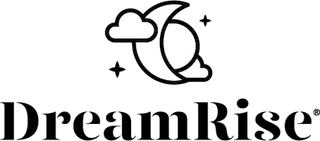We wrote this post as social commentary about the United States culture of "always hustling, always overworked." There has been a sad decay in the virtue of resting well. Learning how to re-energize your mind and body is key to a sustainable, healthy life that can endure its challenges.
It wasn't always like this. Aristotle's famous quote, "There is no leisure for slaves" spoke to work as a necessary struggle, the "rat race." He went on to describe "by contrast, to be at leisure is to be free to pursue studies and activities aimed at the cultivation of virtue (such as music, poetry, and philosophy). These are properly the ends of noble leisure."1 Labor and leisure are NOT enemies of one another. They complete one another in a partnership allowing one another to continue in harmony. Rest is a useful skill!
We’ll share with you some ideas on how to better your resting game.
Making Clear Boundaries
First, take rest as a life priority. Block it off on the calendar if you’re a planner. Please, take your PTO, take the weekends off.
Writing an e-mail during your family dinner or kid’s playtime is a compromise that no one wins. You're just getting a rushed message and a neglected child as the end result. Establishing boundaries between work and your personal time is beyond critical.
Does this sound like a luxury? We’re trying to increase the chances of you staying committed to rest and self-care.
Create a Daily Rest Cycle Schedule
With every job and vacation, there are different ebbs and flows to how time is made in your schedule. But having a good daily schedule where you’re optimizing clear windows of work, then resting, is a key starting point in creating good rest habits.
Using research about your body's ultradian rhythm and basic rest-activity cycles, you should have high-focus work chunks of 90-120 minutes, followed by rest breaks of 20-30 minutes. Your undivided concentration can only be present for so long. What makes this tricky is your own ability to accurately assess your productivity decreases as you become more tired from long stretches of work. Don't fall into that productivity trap.
The Deep Play
Interesting observation: a lot of the successful people around us do serious, demanding hobbies in their spare time. Mountaineering, sailing, endurance, combat sports, you name it.
In his book, Painting as a Pastime, Winston Churchill wrote, "It is not enough merely to switch off the lights which play upon the main and ordinary field of interest; a new field of interest must be illuminated." And only with deliberate rest of "when new cells are called into activity, when new stars become the lord of the ascendant, that relief, repose, refreshment are afforded."
At DreamRise, we have taken on film photography, boxing, poker, writing, and chess as a few forms of deep play. For Winston, painting was his deep play from politics.
No matter what you choose, it should be mentally engaging, provide you with some of the same psychological rewards as your best work but in a very different context, and away from actual work’s problems.
Don't Skip Sleep & Naps
Aristotle is not alone in this thinking if you need lists of successful folks who advocate sleeping well, even naps.
A 20-minute nap is the same energy boost as a cup of strong coffee (minus the caffeine crash) and helps us remember new information better. Can't nap at work? Then focus on your sleep at home, setting regular bedtimes, having pre-sleep rituals like meditation (with DreamRise!) to settle the mind.
Long-term studies show your quality of sleep impacts your risk of cognitive decline and dementia, even Alzheimer’s disease.2
Spread the Rest!
Rest with others, have accountability in your company and family cultures to advocate and rest together. You have to sell this philosophy to the leaders of your organization, that work is important, but so is rest.
Even doing something such as holding meetings only in the afternoon could be a welcome change, allowing everyone to execute their most important tasks in the morning. One's rest shouldn’t come at everyone else’s expense, it should benefit all.
It's taken us years of practice to prioritize one's rest given our career history. Taking a break isn't being lazy, it's being kind to yourself. Today's just as good as any other to see work and rest as partners on your journey for a better-rested self.
1https://blogs.harvard.edu/nobleleisure/aristotle-on-work-vs-leisure/
2https://www.ncbi.nlm.nih.gov/pmc/articles/PMC4323377/

